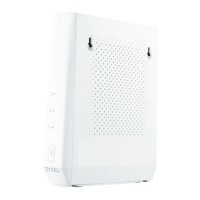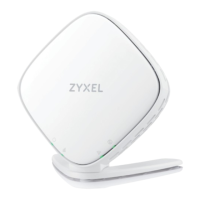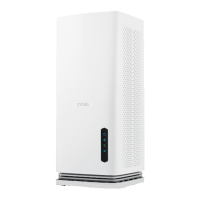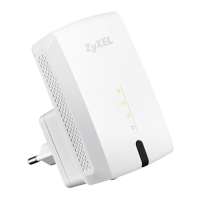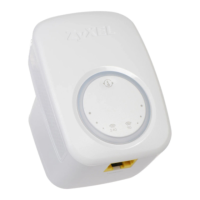Chapter 1 Introduction
WX Series User’s Guide
18
1.5 MU- MIMO Te c hno lo g y
Multi-User, Multiple-Input, Multiple-Output (MU-MIMO) allows an AP to transmit
and receive data to
multiple groups of MU-MIMO enabled WiFi clients at the same time, using a technology called RF
multipath. MU-MIMO divides its bandwidth evenly among all MIMO-compatible WiFi clients and keeping
the WiFI signal constant for them all. Transmit Beamforming
technology lets the AP focus its signals
directly to WiFi clients to effectively extend WiFi coverage and minimize dead spots. WiFi clients in the
same group can also co-ordinate in order to transmit to the AP at the same time. MU-MIMO helps
decrease client waiting time and increase network throughput. This will improve WiFi performance with
MU-MIMO compatible WiFi clients.
1.5.1 2X2:2 MU- MIMO
2X2:2 MU-MIMO WiFi means an AP
allows two transceivers and two receivers to communicate
concurrently with multiple WiFi clients, dividing up the bandwidth evenly. In 2X2:2, the first and second
number (n X n)) show the number of transmit and receive antennas respectively. The third number (: n)
means the number of data spatial streams, indicating the number of independent data signals that can
be sent simultaneously from a single transmit antenna. For example, in Fig ure 12, when two wireless
devices are connected to an AP, the AP can communicate with two devices (Client C 1 and C 2)
simultaneously.
Fig ure 12 2X2:2 MU-MIMO
1.5.2 4X4:4 MU- MIMO
4X4:4 MU-MIMO WiFi means an AP
allows four transceivers and four receivers to communicate
concurrently with multiple WiFi clients, dividing up the bandwidth evenly. For example, in Fig ure 13,
when four wireless devices are connected to an AP, the AP can communicate with four devices (Client
C1, C2, C 3 a nd C 4) simultaneously.
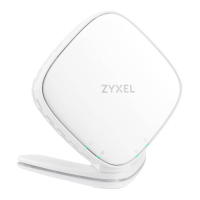
